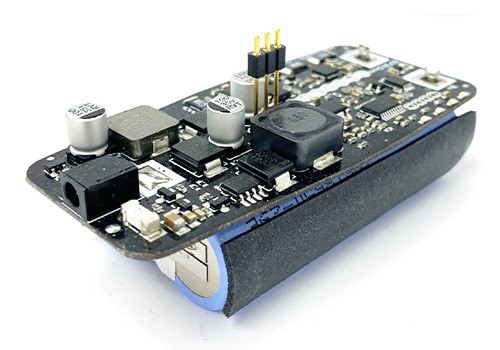Proper cell balancing is critical to the efficiency and lifespan of lithium-ion battery packs. As these batteries become increasingly popular in applications ranging from electric vehicles to renewable energy storage, understanding cell balancing is essential for optimizing performance and safety.
Understanding Cell Balancing
Cell balancing refers to the process of equalizing the charge levels of individual cells within a li-ion battery power pack. Since battery packs are made up of multiple cells connected in series and parallel configurations, discrepancies in cell voltage can occur due to manufacturing variations, aging, and usage patterns. If it is left unchecked, these imbalances can lead to reduced performance, decreased capacity, and potential safety hazards.
Why Cell Balancing is Important
Ensuring that all cells in a lithium battery power pack are balanced is crucial for several reasons:
- Maximizes Capacity: Balanced cells ensure that the battery pack can achieve its maximum rated capacity, as the weakest cell determines the overall performance.
- Prolongs Lifespan: Preventing individual cells from being overcharged or over-discharged extends the lifespan of the entire battery pack.
- Enhances Safety: Proper balancing reduces the risk of thermal runaway, a condition where cells overheat and potentially catch fire or explode.
Methods of Cell Balancing
There are two primary methods for cell balancing: passive and active.
- Passive Balancing: This method involves dissipating excess energy from higher-charged cells as heat. Resistors are used to discharge the cells until they match the voltage of the lower-charged cells. While passive balancing is simpler and less expensive, it is less efficient due to the energy loss as heat.
- Active Balancing: In contrast, active balancing redistributes energy from higher-charged cells to lower-charged ones. This method uses inductors, capacitors, or transformers to transfer energy efficiently within the pack. Although more complex and costly, active balancing is more efficient and can significantly improve the overall performance of the battery pack.
Implementation in Lithium-ion Battery Packs
Li-ion battery packs integrate cell balancing through sophisticated Battery Management Systems (BMS). The BMS continuously monitors the voltage of each cell and activates balancing circuits as needed. This ensures that all cells remain within safe operating limits, optimizing the battery pack's performance and safety.
Challenges in Cell Balancing
Despite its benefits, cell balancing presents several challenges:
- Complexity: Implementing active balancing requires intricate circuitry and control algorithms, increasing the design complexity and cost.
- Energy Efficiency: Passive balancing, while simpler, is less energy-efficient due to energy dissipation as heat.
- Monitoring Accuracy: Accurate measurement of cell voltages is crucial for effective balancing. Any inaccuracies can lead to improper balancing, affecting the battery pack's performance and safety.
Future Trends in Cell Balancing
The future of cell balancing in lithium battery power packs involves several exciting trends:
- Advanced BMS: Innovations in BMS technology are making cell balancing more efficient and reliable, incorporating artificial intelligence and machine learning for predictive maintenance.
- Wireless Balancing: Emerging technologies are exploring wireless balancing methods to simplify the design and improve energy transfer efficiency.
- Integrated Solutions: The development of integrated circuits that combine balancing, monitoring, and protection functions is streamlining battery pack design and reducing costs.
Final Thoughts
The cell balancing is a critical aspect of maintaining the performance, safety, and longevity of lithium ion battery packs. By understanding and implementing effective balancing techniques, industries can ensure their battery systems operate at peak efficiency. At Emerging Power, we prioritize advanced cell balancing solutions to deliver reliable and high-performance li-ion battery packs for various applications. As technology continues to evolve, the importance of cell balancing will only grow, playing a pivotal role in the advancement of energy storage systems.

